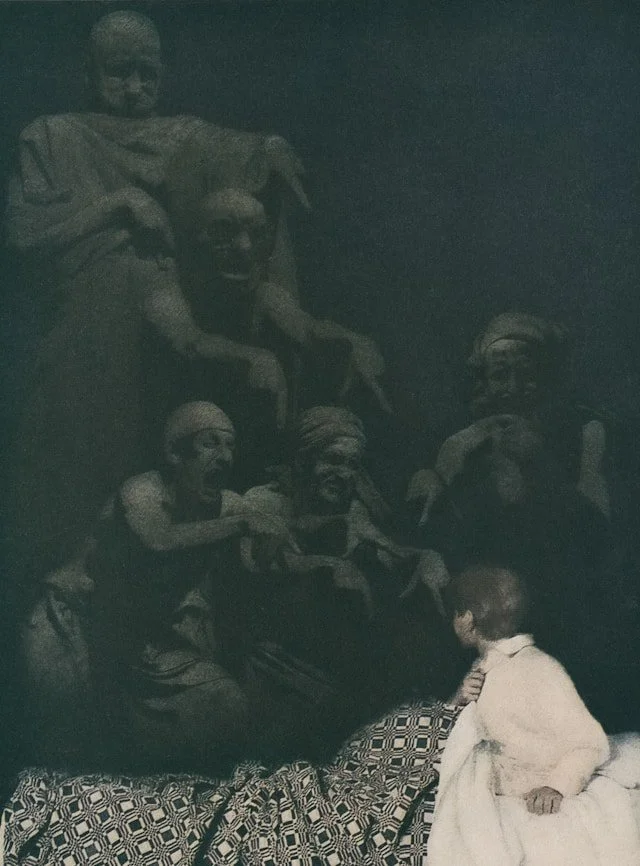Soul is making a comeback: Wyatt Graham begins, “Everything seems to suppress soul. We live to catalyze efficient products. Our labour is counted, quantified, and measured. Human resource departments view us as human resources. They measure our performance by mechanical standards, and our salary relies on whether or not we have added value to a corporation. Work commodifies humans as resources; it is why HR departments exist. You are coal to be mined.”
Gen Z women struggle to find their way in Christian faith and community: A recent Barna study reports, “Currently, young adult women report the lowest rates of Bible reading, prayer and church attendance among their peers.”
Your Heart Is Not a Toy
“That isn’t a toy!” parents warn a child playing with a knife or a hammer.
Pharaoh thought he could play a game with God and win. He lost.
Your heart is not a toy.
The story of God’s battle with Pharaoh in the book of Exodus is the story of the consequences of a hardened heart. It’s the story of someone who thought they could toy with God and with their heart. We cannot.
In the first five plagues, Pharaoh’s hardens his heart three times and his heart “is hardened” (it’s ambiguous who is doing the hardening) twice.
This Week's Recommendations
When bitterness becomes your religion, healing becomes heresy: Christopher Cook says, “But here’s the fruit of that belief system: the most anxious, entitled, bitter, and emotionally fragile generation in history. The world is not freer. It is more fractured. The culture of curated authenticity has not led us to peace, but to exhaustion.”
Mortifying our desire: Keith Evans begins, “A young man once told me, “I never chose to feel this way. These attractions seem to have always been part of my life.” His honesty captures what so many experience—same-sex attraction often feels unchosen, even natural. But when we look to Scripture, we discover even that which may feel natural is not always good.”
Your Soccer Coach Has a Plan for Your Life
“The coach says that he has the talent to play D-1 one day.” A friend’s son had just tried out for an elite club soccer team and they were weighing the decision. The travel club came with a hefty price tag and a commitment to regular out-of-town tournaments. They would say yes to the club. In a few years their son would burn out from playing soccer. But the impact on their family couldn’t be undone. They had built the patterns of their family in their kids’ early years around healthy spiritual rhythms, including regular church attendance. Club soccer changed those patterns.
This Week's Recommendations
Will I ever love a church again? Brittany Allen asks, “Could I reclaim that vulnerability that once came so naturally to me after it had been used as a weapon pointed at my own heart? Could God rebuild my faith in his Bride and redeem what had been lost?”
The hidden curriculum of the wilderness: Christopher Cook says, “When you’re in that space—the wilderness between who you were and who you’re becoming—you will be tempted to mislabel it; to call it punishment; to rebuke it like it’s an attack; even, to distract yourself from it.
This Week's Recommendations
When God says now: Christopher Cook says, “I understand the hesitation, but you and I need discernment for this hour. We are being called to submit. Our job is not to assess our readiness (according to our perspective). It is to step forward with clean hands, a yielded spirit, and a heart tethered to the will of the Father.”
The secret things: Andrea Sanborn concludes, “Someday we’ll know the secret things that our mortality can’t fathom. “Now I know in part; then I shall know fully, even as I am fully known”, as the Apostle Paul explained it. But for now, it’s okay to rest in wonder. Because wonder, in the end, is worship.”
This Week's Recommendations
The vermin of intrusive thoughts: Crystal Kershaw writes, “In 2 Corinthians 10:5, Paul uses battle language to describe the ongoing struggle taking place in believers’ lives. He describes bullets of “arguments” and “pretensions” that land in our internal dialogue. Our supernatural Enemy fires them with a clear, age-old motive; to undermine our faith.”
Just a little bit: Rachel Whisman says, “When have I tried softening sin to make it seem more comfortable, more approachable? Where are you willing to add “just a little bit” to something to make it seem okay? Where are you willing to cave in for “just a little bit” more?”
This Week's Recommendations
1. Don’t scratch the itch: Brittany Allen begins, “I have a weird problem. When I get in the shower, my legs inevitably begin to itch like crazy. I cannot for the life of me find the self-control it takes to not scratch. I have a condition called dermatographism that causes my body to react to scratching with hives. By the time I step out of the steaming hot water, my thighs are covered with wheals. I scratched the itch and the itch only intensified.”
2. Should Christians plead the blood of Jesus? Wanjiru Ng’Ang’A explains the history of this prayer and then offers a warning,
The Embarrassing Cry of Faith
The year was 1990. II was eleven years old, and skateboarding was HOT. Tony Hawk was soaring and Rodney Mullen was innovating street skating, popularizing tricks like the ollie. I watched in awe as kids jumped up and then slid down handrails (a grind). I dreamed of doing so myself.
At the top of my Christmas list was, of course, a skateboard.
I counted down the days until I would unwrap my rad new board. I bolted up on Christmas morning, raced down to the tree, and, to my dismay did not locate anything that looked like a skateboard.
This Week's Recommendations
Faithfulness in an inside-out world: This is a good one from Andrew Noble, In today’s age, people are to find out what’s inside first, and then they are to express it outward. Charles Taylor describes this as “a culture of authenticity.”
Fight brain rot by reading books: This one is written to Gen Z, but applies to everyone. Luke Simon writes, “What surprised me most was how different reading was from scrolling. My phone had trained me to skim, to consume quickly, and to expect instant gratification. Books demanded something deeper: focus, patience, and the willingness to sit with ideas that don’t immediately resolve.”














